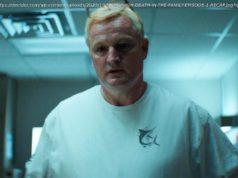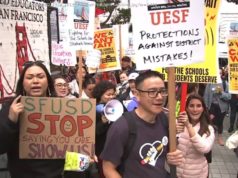In a case that many legal analysts expected to return an acquittal, Michelle Carter was found guilty of involuntary manslaughter for urging her boyfriend, Conrad Roy III, to kill himself. The verdict…
In a case that many legal analysts expected to return an acquittal, Michelle Carter was found guilty of involuntary manslaughter for urging her boyfriend, Conrad Roy III, to kill himself. The verdict was returned by Judge Lawrence Moniz, who, in returning the verdict, noted that Michelle Carter’s actions were not only illegal but also immoral. A conviction of involuntary manslaughter can carry a sentence up to 20 years in prison, however, it is unlikely that Carter will receive a maximum sentence. Because Carter was a minor at the time of the crime, her trial was held in juvenile court. The sentencing hearing is set for August.
In July of 2014, when Ms. Carter was 17, she encouraged Mr. Roy, through text and phone call to kill himself. Mr. Roy used carbon monoxide to kill himself as he sat alone in a K-Mart parking lot, with the exhaust of a water pump blowing the noxious chemical into his vehicle. At one point, he became sick from the fumes, and after stepping out, he was ordered by Carter via a phone call to get back in the truck. Roy was found dead the next day.
The American Civil Liberties Union (ACLU) in Massachusetts argued that the conviction violates Michelle Carter’s free speech protections. The ACLU maintains that the communication between Carter and Roy was an important end-of-life discussion between the two with no malice.
Judge Moniz, in issuing his verdict, disagreed and said that the culpability of Carter over Roy’s death involves her direct knowledge that he was in a toxic environment and did nothing. He pointed specifically to her lack of contact with the police of the victim’s family. More pointedly, Moniz said that Carter did not tell Roy to do the one thing that would have saved his life: get out of the truck.
Although suicide is legally considered to result from a person’s free will, Judge Moniz points to Roy exiting the vehicle as the break in the chain of self-causation. As soon as Roy stepped out, he made the effort to get help. In previous suicide attempts in 2012, Roy was able to get the help he needed. In 2014, when speaking with Carter, he didn’ t get that help. Instead, when Ms. Carter ordered Roy back in the truck, she legally was guilty or wanton and reckless conduct.
According to Martin Healy, the chief legal counsel for the Massachusetts Bar Association, “The communications illustrated a deeply troubled defendant whose actions rose to the level of wanton and reckless disregard for the life of the victim.”
Healy agrees that the verdict is going to have national ramifications in future cases, showing that remote communication is not necessarily a defense in heinous acts that rise to the level of criminal liability.






